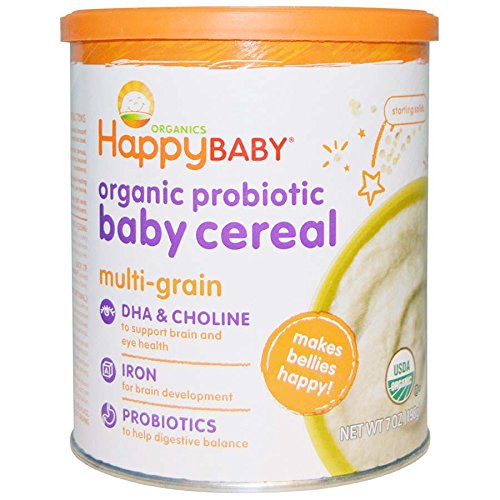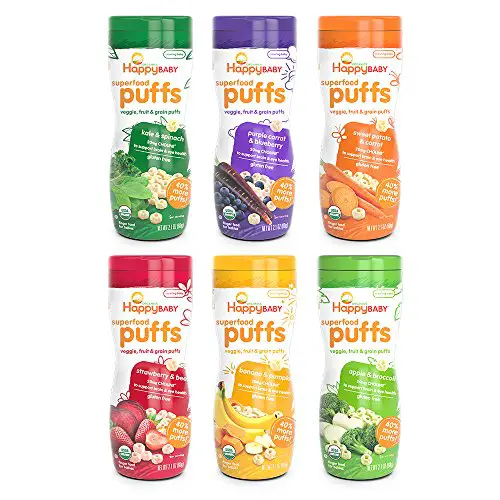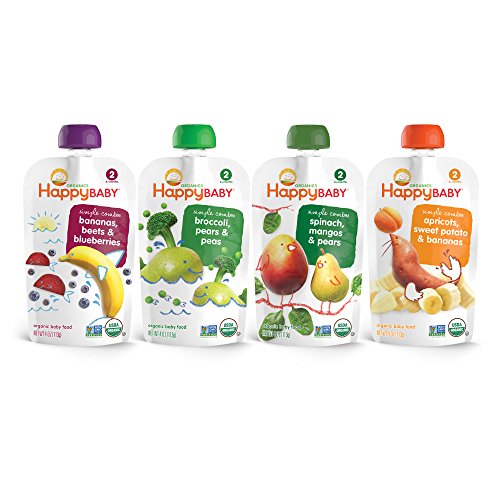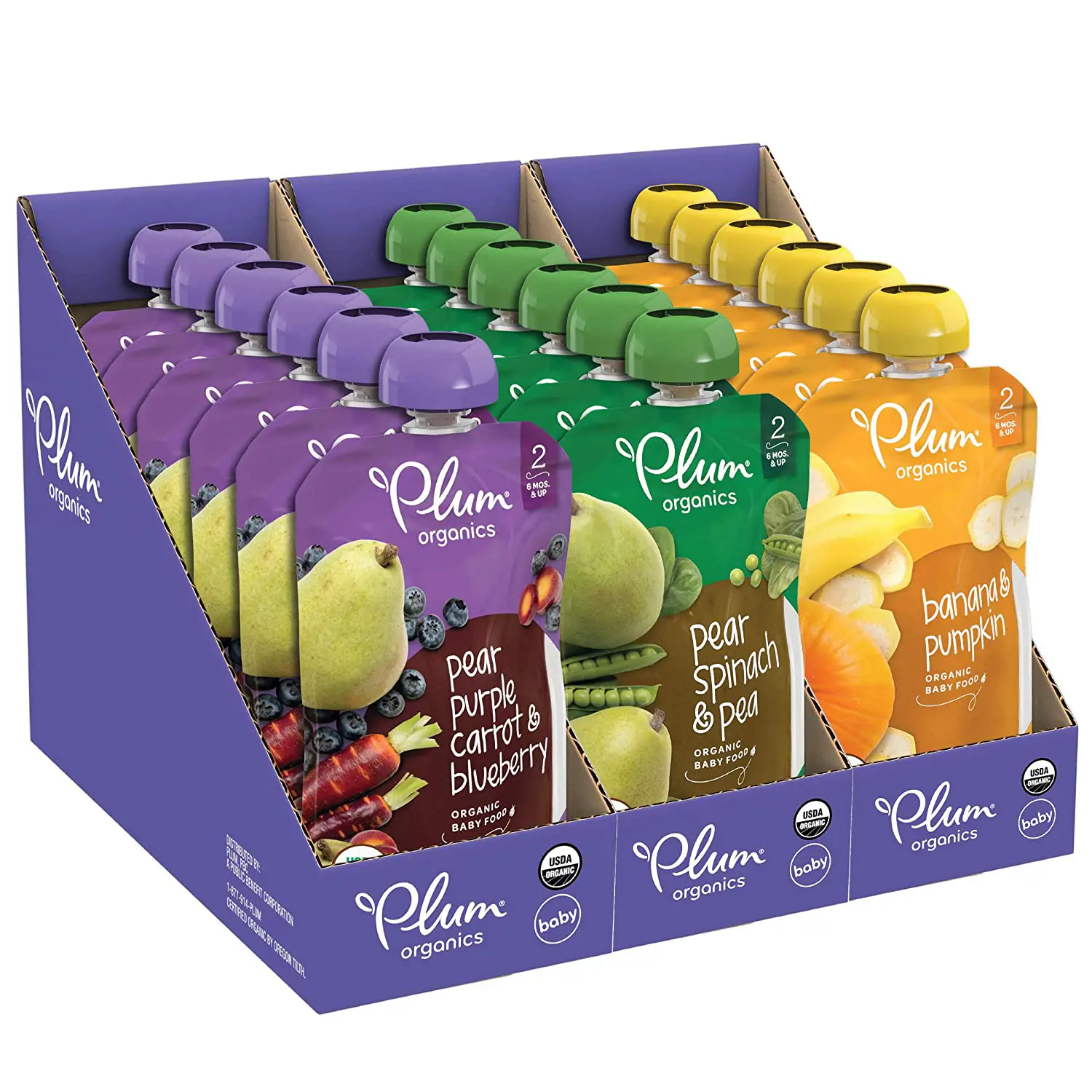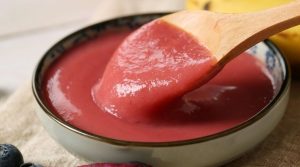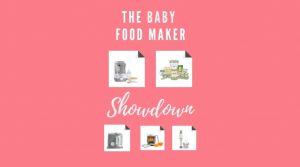As parents, you want your child to grow up with the best of the best. From diapering to early learning toys, you want your little one to have the best foundation possible so they can one day become great adults. It goes without saying that food is a big part of that foundation. After all, proper nutrition leads to strong bodies and healthy minds.
Now that your baby is eating more and more “real” foods, you certainly have a growing number of dietary options, but you might also have a growing number of concerns. With fears about growth hormones, pesticides, antibiotics, and preservatives, more and more parents are turning to organic baby food. Alas, that doesn’t mean safe nutrition is now as simple as picking up a jar of baby food with the words “all natural” stamped on its label. There is still plenty to consider as different organic labels mean different things.1Differences in Organic, Natural, and Health Foods
healthychildren.org/English/healthy-living/nutrition/Pages/Differences-in-Organic-Natural-and-Health-Foods.aspx
Since quality is of the utmost importance to you, let us help you make smart nutritional choices for your youngster.
Choosing the best organic baby food
What qualities does my baby’s food need to meet in order to be considered organic?
Organic produce, meat, dairy and shelf-stable products have become a staple of a healthy modern diet, but the standards that need to be met in order for a food to be called organic are still a little bit mysterious to some consumers. Foods that are simply labeled ‘natural’ or ‘healthy’ aren’t always certified organic, and that holds true for foods made for both you and your baby. Certified organic products will feature the USDA’s official organic seal, indicating that the contents of a product are 95% organic or higher, or an indication that the product is made with 100% organic food. Wondering what that organic certification really means to the content of your child’s food?
- Fruits and vegetables that are grown for use in organic baby food must not use chemical pesticides, synthetic fertilizers, ionized radiation or sewage runoff. They also can not be genetically modified organisms, or GMOs.
- In the United States and Europe, meat, eggs and dairy products that feature an organic certification must be sourced from animals that have never been given antibiotics or growth hormones. According to regulatory language, chickens and eggs should also be cage-free in order to be considered truly organic.
- Shelf-stable products like cereals and formulas that are labeled organic simply utilize organic food for their base ingredients in order to create a product that’s free of unwanted chemicals. They’re also free of dyes, additives and unnatural preservatives that are sometimes used to make commercial products last longer and seem more appealing to children.
What makes organic baby food a great pick for my child?
The fact that organic baby food’s popularity has skyrocketed so drastically in the past decade may make it feel like a fad, but we’re reasonably certain the push toward organic produce, meat and dairy is here to stay. If you’re on the fence about choosing organic food for your baby or making the switch, we took a look at some of the reasons it can be a better pick for your little one.
- Because organic fruits and vegetables are grown without synthetic pesticides and fertilizers, you can be certain that these harmful chemicals aren’t going anywhere near your baby’s food. That means that their exposure to chemicals through their diet is limited.2Mie, A., Andersen, H. R., Gunnarsson, S., Kahl, J., Kesse-Guyot, E., Rembiałkowska, E., … & Grandjean, P. (2017). Human health implications of organic food and organic agriculture: a comprehensive review. Environmental Health, 16(1), 111.
Editor’s note: We’re all about protecting our planet – it’s our only home. If you are, too, you’ll be glad to know that organic baby food is also easier on mother earth.3Differences in Organic, Natural, and Health Foods
healthychildren.org/English/healthy-living/nutrition/Pages/Differences-in-Organic-Natural-and-Health-Foods.aspx
Those same pesticides we strive to avoid in baby’s diet can also lead to soil and water contamination in farming areas, and can contribute to a dangerous diminishing of biodiversity; in other words, they’re killing off organisms that aren’t actually “pests”, but are in fact part of a symbiotic life cycle which allows growing things to thrive.
What are some of the most common notations I’ll see on organic baby food labels, and what do they mean?
There are a few different designations you might run into when it comes to organic baby food. They’re required to be present in order to inform you, the consumer, about what percentage of the food you are buying is actually organic. Differentiating between the most common designations can get a little bit confusing, so here’s a handy guide to help you parse those labels and make sure you’re grabbing the picks you really want for your little one.
- 100% Organic: This is the top dog, the MVP of organic baby foods. Picks that feature a “100% Organic” designation on the label contain no ingredients that have been exposed to synthetic pesticides, genetic modification, sewage sludge-based fertilizer, petroleum-based fertilizer, antibiotics, or hormones.
- USDA Organic: When you see this label on the jar, pouch or box, you can be assured that the product’s contents are 95% organic. This leaves a little wiggle room for the less desirable stuff, but it’s still significantly less likely to contain things you’d rather keep out of their diet.
- Made with Organic Ingredients: While this designation begins to stray away from true organic baby food, it’s still a better pick than some commercial foods. This means that 70% or more of the ingredients in a baby food are organic, which is better than none but not quite as helpful as USDA organic and 100% organic picks.
Are all foods that are free from GMOS (genetically modified organisms) automatically organic? What is the difference between the two?
We already know that in order for a food to be considered organic, it cannot be a genetically modified organism (these are often referred to as GMOs, and so we’ll call them that going forward). This begs an important question from parents, especially in a market that places increasing emphasis on GMO-free products – are all non-GMO products organic?
Parents, we’re here to let you know that the answer is a great, big NO on this one. Just because an organism is not genetically modified does not mean that it has been grown organically.
Genetic modification is something that happens at the cellular level. It’s a process that takes place when scientists splice genes in order to attempt to create stronger, more productive genotypes – in the case of fruits, vegetables and animals, this means larger, more productive and more disease and blight-resistant organisms than exist naturally. There are quite a few reasons that some parents feel strongly about avoiding GMOs for both themselves and their children, but truly organic products don’t stop at their non-GMO status.
As we’ve covered, in order for fruits and veggies to be organic picks, they need to have been grown in an environment that was free of synthetic pesticides and fertilizers. Plenty of non-GMO fruits and vegetables are still grown in chemical-heavy conditions, meaning they can’t be considered organic. Likewise, the farming conditions necessary to create organic meats and animal byproducts are not automatically present simply because farm animals don’t come from genetically modified lines. The Non-GMO Project logo is a great indicator that GMO practices weren’t used in the creation of a product, but look for an organic certification to be sure it’s truly healthy.
Is organic baby food something I can make at home? How can I be certain my homemade baby food is organic?
Good news for parents who love to get their hands dirty in the kitchen – making your own organic baby food is one of the best ways to know exactly what is on your little one’s plate. If you’re wondering whether making homemade organic baby food is any more complex than the standard food-making process for baby, then, fortunately, the answer is ‘no’. There’s no special method of preparation needed, and standard steaming is always best for achieving a texture that’s easy to puree.
Just because a company labels its food as natural or organic doesn’t automatically mean that it’s the best of its kind. One way to ensure that everything they eat is of the highest quality is to make your own baby food and to do that you might want to consider adding a baby food maker to your arsenal.
If you’re wondering how to be sure your baby’s homemade food is 100% organic, there’s basically a single golden rule: stick with 100% organic ingredients. Now, if this sounds like less than rocket science, let us elaborate. While you might be making great fruit and veggie picks from the organic section, if you’re thinning out purees with juices or stocks that aren’t organic, the designation is lost. Even if you’ve made the juice or stock yourself, unless it’s entirely organically grown and/or raised material, it cannot be considered organic. Fortunately, there are myriad wonderful organic pre-made options for both, so remember, look for a 100% organic label before proceeding.
Editor’s note: Watch for nitrites. If making your own baby food, it is important to be aware that dark green vegetables, such as spinach and carrots, have higher levels of nitrites than other vegetables. Nitrite naturally occurs in soil, and these particular vegetables tend to absorb more of this compound. Young infants are particularly sensitive to nitrite, which can cause a blood disorder. Because commercially prepared organic baby foods are required by law to reduce the nitrite content, it may be best to avoid making your own infant carrots and spinach.4Are there options that extend beyond fruit and vegetable purees?Greer, F. R., & Shannon, M. (2005). Infant methemoglobinemia: the role of dietary nitrate in food and water. Pediatrics, 116(3), 784-786.
An organic diet for your baby doesn’t need to stop at their fruits and veggies. If and when you are ready to introduce meat into your child’s diet, there are a number of brands that offer organic meat-based purees that will be free of the growth hormones and antibiotics present in some non-organic meats. When making your own meat purees, refer back to our adage of choosing 100% organic stock to be sure their food stays authentic.
When it comes to rice cereals, puffs, and other baby foods and snacks, organic options that use safely grown corn or rice and natural, healthy flavorings are often available. In fact, there’s an organic version of just about every food you’d want to offer your baby, so shop carefully and follow the brands you trust for great suggestions and new organic product announcements.
Is all organic baby food automatically healthy? What ingredients should be avoided?
When we think ‘organic’, we think ‘healthy’, which is neither bad nor wrong. Organic foods are grown and raised in healthier ways than their non-organic counterparts, but it’s the way they’re cooked and served that ultimately determines whether their consumption is actually healthy – this is true for both you and your child.
While most organic baby food leans toward the healthy side of things, simply being organic doesn’t mean that unhealthy ingredients can’t be present in high quantities. Salt and sugar are the most common culprits in shelf-stable baby food that are less than healthy. It’s not hard to understand why, of course – who among us hasn’t salted something or sweetened it up to make it taste a little better?
It’s an effort by companies to make their baby food enjoyable for kids, but moderating the salt and sugar content found in their baby food will help you be sure you’re making a pick that’s truly healthy. Look for picks that are low in or free of sugar and salt, especially when it comes to fruits and veggie purees, which should be naturally appealing.
Editor’s Note: Avoiding sugar also helps your baby from developing a preference for “sweet tastes” that can lead to “picky” eating when they are older.5I Need a Treat: How to Tame Your Child’s Sweet Tooth
6healthychildren.org/English/healthy-living/nutrition/Pages/How-to-Tame-Your-Childs-Sweet-Tooth.aspx
Is it possible to keep my child’s diet organic if they must be formula-fed
Breastfeeding is the ultimate organic diet for newborns, but, for many reasons, it’s not always possible. In situations where full formula feeding or formula supplements are necessary, it’s reassuring to know that there are quality organic formulas available that can deliver your baby the essential nutrition they need without the chemicals, hormones, and antibiotics they surely do not.
When formula feeding your baby, the absolute best-case scenario is to choose an organic formula that’s whey-based. The reason for this is fairly simple – the contents of human breast milk contain around 80% whey, while cow’s milk has only about 20% whey with a significantly higher level of casein. This means that cow’s milk formula delivers a powerful protein punch and can lack some of the essential amino acids that whey is able to impart. Organic whey-based low-protein formulas are among the closest alternatives to mother’s milk, providing support for healthy growth without some of the weight issues associated with using cow’s milk-based formulas.
For babies with a milk allergy, hydrolyzed formulas are also available.
Our picks of the best organic baby food brands
Now that you’ve done some research, let’s check out some available organic baby foods.
Best veggie purees
Our opinion
On-the-go snacks can be a serious lifesaver for parents whose growing toddler’s stomachs may sometimes seem like bottomless pits! There are loads of less-than-healthy picks out there, so feel good about giving Lil’ Crunchies; an organic pick from Gerber.
The snacks are made from puffed corn, this pack including both mild cheddar and veggie dip flavors, offering kiddos a bit of variety. There are 2 grams of whole grains in each serving, and they’ll get 15% of their daily iron and 20% of their vitamin E, making these crunchy corn puffs both nutritious and delicious.
Best fruit purees
Our opinion
For your 4-month-old, this is a USDA organic food that provides an excellent introduction to the fruit food group. The resealable pouch is both GMO and BPA-free, and the food itself contains no artificial colors or flavors, with no added juice, salt, or sugar. Some parents found the puree to be on the thin side, so if you prefer something with a thicker consistency, this might not be the product for you, but it’s easy to throw into your bag if you’re going out for the day.
Best on-the-go
Our opinion
Providing a whole serving of fruit, this product doesn’t need a spoon to be enjoyed by your child. Made for babies six months and up, this is a nutritious snack even when you’re on the go. It is USDA organic, GMO-free, and comes in BPA-free packaging.
Though it may be one of the more expensive food items on your shopping list,
On the bright side, the squeezable pouch has a screw-on top. This means if your little one doesn’t finish his snack, it can be saved for later.
Best baby cereal
Our opinion
USDA organic, this cereal is rich in iron, calcium, choline, and probiotics. It contains no trans-fats or high-fructose corn syrup. Some parents find it’s aroma a turn-off, and a few have experienced the food expiring too soon after purchase, so keep that in mind before buying.
Most reviews, however, are positive, so if you are looking for your baby’s first cereal, this reputable brand might just be the best place to start.
Best baby superfood
Our opinion
If your toddler uses the word “puffs” more than “mommy” or “daddy”, you’re not alone. Here’s a convenient and tasty snack that seems to be universally beloved by little ones, and Organic Superfood Puffs from Happy Baby offer unique nutritional benefits to your child.
Not only do they have the healthy vitamins, minerals and antioxidants imparted by the healthy foods that make them up – think picks like sweet potatoes, kale, beets and more – they’re also enhanced with choline, enhancing your baby’s eye and brain health.6
Best for variety
Our opinion
Available in three stages, you can find a suitable Earth’s Best veggie puree for your child from four months to over nine months. This product is USDA Organic, as well as kosher and free of added sugar, salt, and wheat.
While one of the pricier organic options, this item is free from many potentially harmful additives like growth-hormones, pesticides, and artificial colors. The packaging is BPA free while the glass jars are recyclable. Their stage-one veggie variety pack includes carrots, sweet potatoes, and peas for a great introduction to healthy eating.
Best fruit and veggie combo
Our opinion
For ages 6 months and up, these BPA-free pouches contain nutritious mixtures of fruits and veggies in several combinations. It’s a USDA organic product that is also GMO-free. Since the pouch is squeezable, beware of leaks and messes if letting your child feed themselves.
Though some parents find that the consistency isn’t always… well, consistent, most report that their children eat this right up without complaints, so who would argue with those results?
Best puree
Our opinion
Another Plum Organics puree? Yes, although this one has the honor of scaling Amazon’s #1 Best Seller list. With several flavors included in the variety pack, you’ll be able to quickly discern which ones your child prefers. Like the above-reviewed Plum product, this food is USDA organic and contains no GMO ingredients. Made for children six months and up, it contains no added sugar, while the pouch is resealable.
Pros and cons of making your own organic baby food versus buying ready-made ones
If weighing the cost and effort between making your own organic baby food or sticking to ready-made jars and packets, we can’t blame you. There are positives and negatives on both sides, and ultimately, the “right” answer varies from parent to parent. We took some time to compare the pros and cons of making your own organic baby food from scratch or purchasing directly from the shops to help you decide which choice may better suit your lifestyle.
Making your own organic baby food
PROS
- When you prepare your own child’s baby food, you have the opportunity to hand-select the fruits, vegetables, meats, stocks and juices that go into the creation of their entrees, allowing you to be sure they’re healthy, organic and extra fresh.
- For parents putting ecological consciousness first, making your own food removes the manufacturing step of the food creation process and eliminates the waste created by baby food pouches and jars, which, unfortunately, cannot always be recycled.
- An additional green living bonus of making organic food from scratch lies in how the fruits and vegetables are grown, eschewing the use of synthetic fertilizers and pesticides which contaminate soil and water supplies while negatively impacting the biodiversity of an area
CONS
- Organic foods are great picks for both you and your child, but aren’t cheap. If you’re not already eating organic, making the switch to buying, steaming and pureeing whole organic products can be costly – though the same can, indeed, be said for pre-made food. Much, therefore, depends on your access to affordable organic produce.
- While it’s a labor of love, making organic baby food from scratch is a time-consuming process. Steaming, pureeing and batching foods, storing them properly and labeling them can be a process that cuts into your day, so, if you’re lacking in available free time, this might be an undertaking to avoid.
- Experienced cooks and parents will likely go into making their own organic baby food with many creative ideas in mind, but for those with less culinary inclination, knowing how to achieve the right balance of flavor, texture and nutrition can be challenging. There are amazing cookbooks devoted to making organic baby food, though, so don’t hesitate to take a peek if you’re a novice on the hunt for guidance.
Buying ready-made organic baby food
PROS
- We don’t need to tell you how convenient it is to have healthy food readily available for your child. It’s the whole reason the commercial baby food industry exists – it’s a huge time saver for parents to be able to rely on brands they trust to provide healthy foods their baby will eat and enjoy.
- You don’t have to worry about shopping for specific ingredients, double-checking that they’re organic and then preparing them – the fact that there’s a certification system in place for organic foods lets parents stay assured that they’re making picks that really can avoid chemicals, additives, hormones and antibiotics.
- If you aren’t one for juggling knives or breaking out the steamer, buying ready-made baby food means you can skip tedious time in the kitchen that can be happily spent playing with your little one or catching up on other work.
CONS
- Organic baby food costs about a dollar a jar on average. This means that if your baby eats the typical three jars of food consumed by most babies in a day, you’re looking at a baby food budget of over $80 a month. However, organic produce and meats aren’t always available at low prices, and the making vs buying debate can vary from region to region in terms of economics.
Wrapping up
While food is a vital part of life, healthy, organic food is a privilege you’d certainly want your baby to enjoy. After all, they have the rest of their lives to sneak a bag of chips or trade their apple for a sugar cookie at the lunch table. For now, you can make sure that they are eating healthy, nutritious food that allows them to grow into healthy adults. Bon Appetit and don’t worry, no one is going to judge you if you sneak a bite of your infant’s fruit puree!






